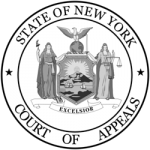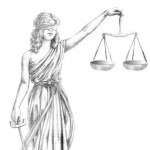There were many luminaries at the 1787 Constitutional Convention. Washington, Franklin et al. Often overlooked is the Preamble’s author, Gouverneur Morris. The Constitution’s Preamble has stood as the mission statement of the United States since the Constitution was made public and sent to the states for ratification in September, 1787. Nearly every American student has […]
Archives for October 2012
Article I of the US Constitution
The United States Congress is the branch of government that passes laws. This authority is granted by Article I of the Constitution. The Constitution is organized into seven articles. Article I, defines the legislature, its powers and prohibitions and defines relations between the federal and state governments. Article II defines the presidency. Article III defines […]
Ongoing Legal Battles Against The Federal Assault on Religious Liberty
With the October filing of a lawsuit by the Roman Catholic Archdiocese of Miami, the number of lawsuits challenging rules put forth under the Affordable Care Act (Obamacare) mandating that health plans must include morally objectionable benefits that has grown to thirty-seven. Religious freedom and the First Amendment’s Free Exercise of Religion Clause have come […]
The Purpose of Criminal Punishment
People who break the law are punished. Criminal penalties range from a small fine or community service to the death penalty. Why are criminals punished? To justify imposing punishment on one of its members, a society must have a purpose. Most people accept that there are consequences for criminal conduct. The consequences are generally unpleasant […]
Principles of Criminal Liability
A crime has been charged. The defendant pleads not guilty. What must the government prosecutor prove? Why? There are basic principles underlying the prosecution of a crime. A crime is composed of elements. These elements include a mental state, prohibited action and lack of legal justification. Each of these elements must be proven by the […]
The Law of Negligence
Criminal law punishes people for actions that harm all of society. Tort law protects private rights from injuries to individuals. This area of law is also often referred to as personal injury law. A tort is an act that causes harm to another and is either intentional or negligent. Tort claims are based on the […]
The Basic Steps in a Civil Lawsuit: Civil Law Process
Thanks to television dramas and criminal trial news coverage criminal law procedure is familiar to many. How a civil lawsuit proceeds is less well known. Here we are going to learn more about the process and purpose of civil and criminal law differ. In a criminal case, the government seeks to impose penalties upon an […]












